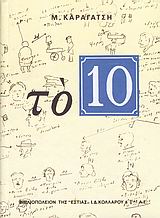 W
WThe 10 is an unfinished novel written by M. Karagatsis. The novel was written in 1960 and was the last novel of M. Karagatsis. Although it was unfinished, the novel was released in 1964 by Estia Publications, 4 years after the death of Karagatsis. Since then, the novel has a lot of new publications. The 10 was adapted for TV series by the director Pigi Dimitrakopoulou, in 2007. The adapted screenplay was written by Stavros Kalafatidis, Mary Zafeiropoulou and Giorgos Kritikos.
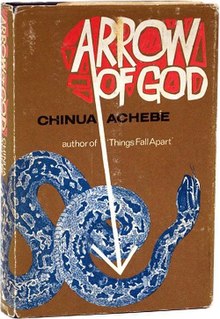 W
WArrow of God, published in 1964, is the third novel by Chinua Achebe. Along with Things Fall Apart and No Longer at Ease, it is considered part of The African Trilogy, sharing similar settings and themes. The novel centers on Ezeulu, the chief priest of several Igbo villages in colonial Nigeria, who confronts colonial powers and Christian missionaries in the 1920s. The novel was published as part of the influential Heinemann African Writers Series.
 W
WBeer In The Snooker Club is a semi-autobiographical novel by the Egyptian writer Waguih Ghali written in English and first published in 1964.
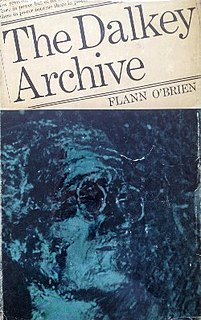 W
WThe Dalkey Archive is a 1964 novel by the Irish writer Flann O'Brien. It is his fifth and final novel, published two years before his death. It was adapted for the stage by Hugh Leonard in 1965 as The Saints Go Cycling In.
 W
WDancing Lessons for the Advanced in Age is a 1964 novel by the Czechoslovak writer Bohumil Hrabal. It tells the story of a man who recounts various events from his past, and in particular his love life. The novel is written in one long sentence.
 W
WFire and Rain is a 1964 Taiwanese novel by romance novelist Chiung Yao. One of her best-known works, it has been adapted multiple times into film and TV dramas.
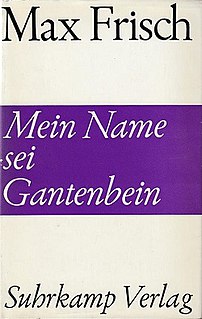 W
WGantenbein is a 1964 novel by the Swiss writer Max Frisch. Its original German title is Mein Name sei Gantenbein, which roughly means "Let's assume my name is Gantenbein." It was translated into English in 1965 by Michael Bullock as A Wilderness of Mirrors. The novel features an anonymous narrator who tells a multitude of fictional stories, which together reveal certain traits and patterns.
 W
WThe King of The Copper Mountains is a children's novel by Paul Biegel, and was originally published as Het Sleutelkruid in the Netherlands in 1964, where it won the Gouden Griffel, the award for the best children's book of the year. An English translation by the author with illustrations by Gilliam Hume was published in 1968 by J. M. Dent. It was reprinted by Franklin Watts in 1969, by Collins Armada in 1971, 1973 and 1989, and by Fontana Lions in 1980 and 1987. The book was also translated into German, Afrikaans, Danish, and Spanish.
 W
WLos relámpagos de agosto was the first novel written by Mexican author Jorge Ibargüengoitia.
 W
WLondon Bridge: Guignol's Band II is a novel by the French writer Louis-Ferdinand Céline, published posthumously in 1964. The story follows Ferdinand, an invalid French World War I veteran who lives in exile in London, where he is involved with questionable people and falls in love with a 14-year-old girl. It is the sequel to Céline's 1944 novel Guignol's Band.
 W
WMaigret on the Defensive is a 1964 detective novel by the Belgian writer Georges Simenon featuring his character Jules Maigret. The novel was first published in English in 1966 by Hamish Hamilton Ltd., translated by Alastair Hamilton. In 2019, this novel was reissued in English by Penguin under the title Maigret Defends Himself (ISBN 9780241304068), newly translated by Howard Curtis.
 W
WThe Old Boys is a comic novel written by Anglo-Irish author William Trevor, first published in 1964.
 W
WOne Man, One Matchet was written by Nigerian author T. M. Aluko and published in 1964 as the 11th book in the Heinemann African Writers Series. The novel tells the story of a community in Western Nigeria during the end of the colonial period and beginning of independence. Set in a small community where the majority of the inhabitants are dependent on the revenue from their cocoa crops, the story looks at the role of the semi-literate Benjamin Benjamin in the small community.
 W
WThe Passion According to G.H. is a mystical novel by Brazilian writer Clarice Lispector, published in 1964. The work takes the form of a monologue by a woman, identified only as G.H., telling of the crisis that ensued the previous day after she crushed a cockroach in the door of a wardrobe. Its canonical status was recognized in 1988 by its inclusion in the Arquivos Collection, the UNESCO series of critical editions of the greatest works of Latin American literature. It has been translated into English twice, the first time in 1988 by Ronald W. Sousa, and then by Idra Novey in 2012.
 W
WA Personal Matter is a novel by Japanese writer Kenzaburō Ōe. Written in 1964, the novel is semi-autobiographical and dark in tone. It tells the story of Bird, a man who must come to terms with the birth of his mentally disabled son.
 W
WProthom Protishruti, also spelled Pratham Pratishruti, is a 1964 Bengali novel by Ashapurna Devi. Considered to be Devi's magnum opus, it tells a story of Satyabati who was given away in marriage at the age of eight to maintain the social norms, and was kept under strict surveillance of brahmanical regulations. The novel narrates Satyabati's struggle to fight against family control, mental violence of the polygamy system, and social prejudices in patriarchal society. It won Rabindra Puraskar (1965) and Jnanpith Award (1976).
 W
WThe Roman is a fiction novel by Mika Waltari published in 1964, and was the last work of Waltari to be published during his lifetime. Set in Rome, the book is a sequel to The Secret of the Kingdom, a novel about the early days of Christianity. The protagonist and narrator is Minutus, the son of Marcus, the main character of the previous novel. Minutus is a Roman citizen striving to survive without political entanglements.
 W
WSecond Skin is a 1964 novel by John Hawkes.
 W
WShepherds of the Night is a Brazilian novel. It was written by Jorge Amado in 1964 and published in English in 1967.
 W
WShirishko Phool, published in 1964, is a Nepali language novel by Parijat (1937-1993). It was the author's first and most successful novel. It was awarded the Madan Puraskar in 1965.
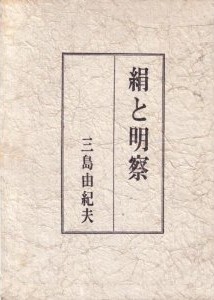 W
WSilk and Insight is a 1964 novel by the Japanese writer Yukio Mishima. The subject of the novel is taken from an actual strike in Japan in 1954 at Omi Kenshi, a silk thread and fabric manufacturer, which lasted for 106 days. The novel was first serialised in the monthly magazine Gunzo between January–October 1964. It was published in hardcover format by Kodansha on 15 October 1964. It was translated into English in 1998 by Hiroaki Sato.
 W
WTime of Parting is a novel written by Anton Donchev and published in 1964.
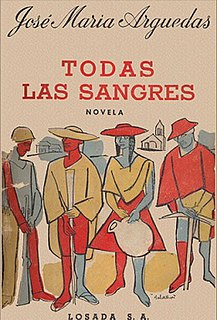 W
WEvery Blood is the fifth novel of the Peruvian writer José María Arguedas published in 1964. It is the author's longest and most ambitious novel, being an attempt to portray the whole of Peruvian life, by means of representations of geographic and social scenes of the entire country, although its focus is on the Andean sierra. The title alludes to the racial, regional and cultural diversity of the Peruvian nation. The novel revolves around two fundamental ideas: the danger of imperialist penetration into the country through large transnational companies, and the problem of modernization of the indigenous world.
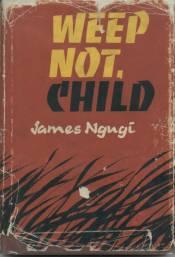 W
WWeep Not, Child is Kenyan author Ngũgĩ wa Thiong'o's first novel, published in 1964 under the name James Ngugi. It was the first English novel to be published by an East African. Thiong'o's works deal with the relationship between Africans and white settlers in colonial Kenya, and are heavily critical of colonial rule. Specifically, Weep Not, Child deals with the Mau Mau Uprising, and "the bewildering dispossession of an entire people from their ancestral land." Ngũgĩ wrote the novel while he was a student at Makerere University.
 W
WWhen the Lion Feeds (1964) is the debut novel of Rhodesian writer Wilbur Smith. It introduces the Courtney family, whose adventures Smith would tell in many subsequent novels. In 2012, Smith said the novel remained his favourite because it was his first to be published.
 W
WWorld Soul is a science fiction novel written by Mikhail Yemtsev and Yeremey Parnov.